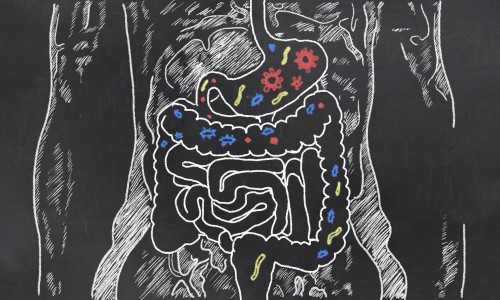Your body is constantly communicating with you. Come learn the language of your gut.
Behind the curtain, our gut is responsible for putting our body into working order. As it breaks down the foods we eat, our gut absorbs nutrients that support our body’s functions — from energy production to hormone balance, skin health to mental health, and even toxin and waste elimination.
BREAKING: Boost Your Memory With This Easy Trick
In fact, about 70 percent of the immune system is housed in the gut, so making sure our digestive system is in tip-top shape can be key to addressing many of our bodily woes. But how do we translate our gut feelings into health solutions?
Your gut may not be a literal voice, but it’s functions communicate in a form of code. From complete silence to hunger grumbles and bathroom habits, get insight into what’s going on inside.
1. Is your poop on schedule?
Normal poops can occur anywhere from three times a week to three times a day. While each gut is different, a healthy gut often has a pattern. To put the timing in perspective, it generally takes 24 to 72 hours for your food to move through your digestive tract. Food doesn’t arrive in your large intestine (colon) until after six to eight hours, so hitting up the toilet happens after that. So don’t scare yourself into sitting on the toilet waiting for the drop (that can lead to hemorrhoids).
If your schedule is off, it could be constipation. Constipation has many causes, from dehydration or low fiber to thyroid issues, but your best bet is to check your diet first. Make sure you’re drinking enough water and include a variety of fruits and vegetables in your diet.
Psst. If you’re not pooping regularly, you could be holding onto food you ate days — even weeks ago. Waste hanging around longer than it should also means it putrefies in your body longer, a potential cause of smelly gas and other health problems.
2. Processed foods are space invaders
Processed foods can cause inflammation in the lining of our GI tract, the exact place where food is absorbed. Your gut may not recognize what you’ve eaten as digestible food and instead interprets the presence of foods like high-fructose corn syrup or artificial ingredients as an “attacker.”
This sets off an inflammatory response in which our bodies are literally fighting these foods as if they were an infection. Sticking to more whole foods, such as whole fruits, veggies, and unprocessed meats, can lower the stress this creates on your body.
3. Not always a fan of gluten
There’s evidence that gluten increases intestinal permeability (also referred to as “leaky gut”), even if you don’t have celiac disease. This means that particles like undigested food and waste, and pathogens like bacteria, can pass through the compromised lining of your intestines, get into the bloodstream, and cause overall inflammation and illness.
The best way to see if gluten is a no-go is to eliminate gluten completely for at least 4 weeks and see what your gut says when you try it again.
Be sure to read labels and ingredient lists! Wheat can be found in a lot of unsuspecting foods (as a binder, filler, etc.), such as chewing gum, salad dressing, potato chips, spices, and more.
Supplementing with the enzyme AN-PEP may be helpful for people with gluten sensitivity who need to follow a long-term gluten-free diet, but want to minimize symptoms from accidental exposure.]
4. It gets lonely without prebiotics
If you’ve recently taken antibiotics, you’ll need to help your gut make new friends again. Antibiotics wipe out all bacteria, including the good ones known as probiotics, such as lactobacillus and bifidobacterium.
Prebiotics, like onions, garlic, asparagus, bananas, and legumes, play a different role from probiotics. They’re dietary fibers that feed the good bacteria in your gut, help reinoculate your microbiome, and offset the effects of your altered gut flora. (Birth control pills may also alter your gut environment as well.)
5. Fill me up with sauerkraut!
Along with your pals prebiotics, your gut needs a healthy dose of probiotics to keep your body systems strong. Fermented foods like kimchi, sauerkraut, miso, and tempeh, and beverages like kefir and kombucha, have live cultures that help your gut break down foods and improve your immune system.
If you don’t already consume fermented foods, start off with 1/4 cup at a time and work your way up to larger amounts. Diving right in with a bigger serving may cause digestive upset.
6. Feeling down? It might be your food
When your digestion is compromised, our bodies can under-produce neurotransmitters, like serotonin. (95 percent of serotonin is produced in the small intestine.) Low serotonin is attributed to anxiety, depression, and other mental health issues.
It may not be the case for every person with these issues, but cleaning up your diet may relieve brain fog, sadness, and low energy.
7. Sleep in on the weekends
Don’t feel guilty for skipping brunch to get an extra hour under the covers, especially if you haven’t been sleeping right during the week. Researchers are still looking into the gut-sleep relationship to verify if improving your gut health will affect sleep, but there’s definitely a connection between poor sleep and the bacterial environment of your gut.
Getting enough sleep helps lower cortisol levels and allows time for the gut to repair itself. So slide your sleep mask back down over your eyes and embrace your next late morning.
8. Slow and steady wins the race
If you’re a slow eater, pat yourself on the back! Taking time to chew your food actually helps jump-start the digestive process. As you break down your food into smaller pieces with your teeth and stimulate saliva production, you also signal to the rest of your body that it’s time for the digestive system to get to work.
9. Relax your mind to reset your gut
The more relaxed you are, the better you’ll be able to nourish your body — and we’re not just talking about digestion.
Stress can change your gut, turning it into a butterfly cage of discomfort. Research shows that taking the time to meditate can help ease symptoms of gut disorders. For an extra mindful boost, learn which specific probiotic strain is right for your mood.
TRENDING: Shed 42 lbs In 30 Days With This Simple Night-time Pill
10. No news is good news
If you haven’t heard from your gut in a while, you’re eliminating regularly, and haven’t been dealing with any bloating or abdominal pain, you’re doing just fine. If it could talk, it would thank you for keeping it nourished and healthy, and for creating a stress-free environment for your body to thrive!









